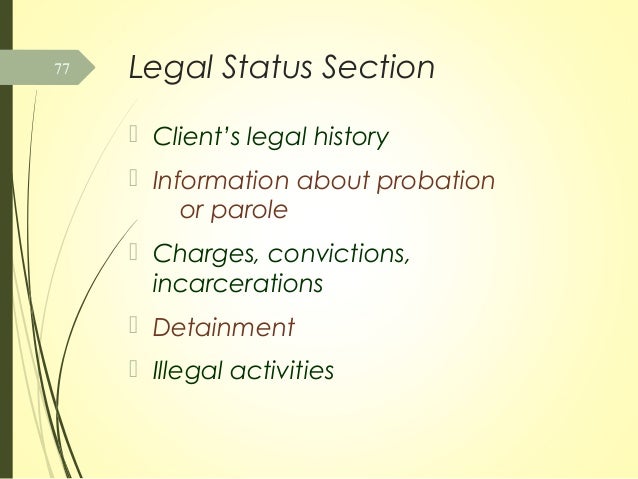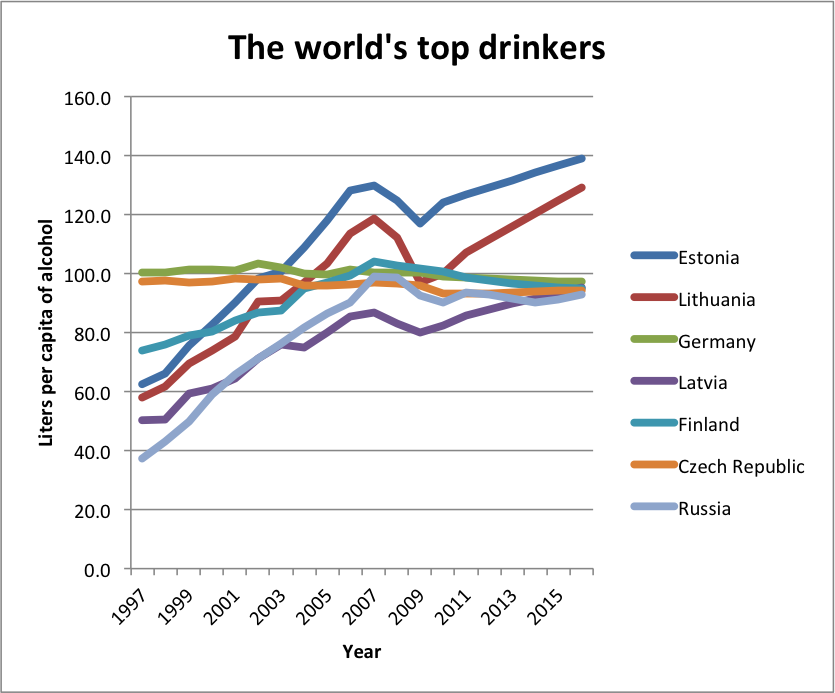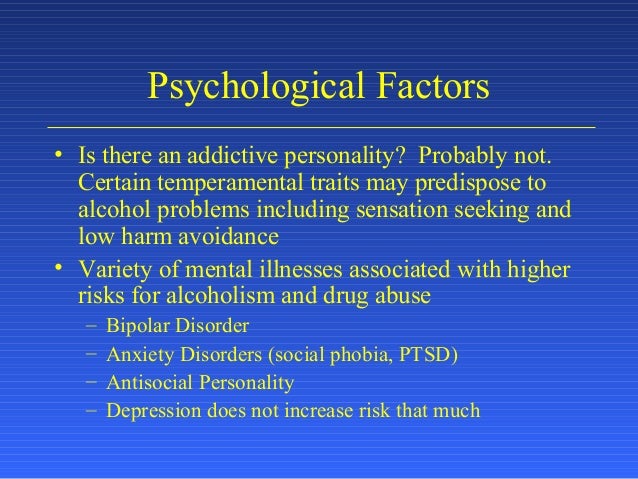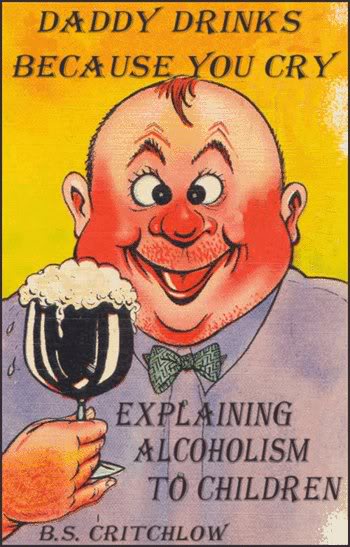| | What is an Alcoholic? Am I an Alcoholic?
If you desire a dictionary definition, an alcoholic is a person who suffers from the disease of alcohol addiction. His or her brain has actually become dependent on alcohol to function, and without a beverage, withdrawal signs take place.
How can you tell if you've crossed the line from drinker to alcoholic? Exactly what do you do if you believe you are an alcoholic? How do you stop? Who can help? We want to respond to all of these questions for you. First, it's crucial to realize why alcoholism is such a hazardous illness.
Why is Alcohol an issue?
Individuals who are affected with alcohol addiction are unable to control their obsession, including both what does it cost? they drink when they drink. Consequently, this can cause health problems and/or problems at home or at work. Plenty of long-lasting alcoholics discover themselves alone and in poor health.
Many individuals don't believe that alcoholism is an illness. Instead, they believe drinking to be a choice. Well, non-alcoholics can stop consuming whenever they want. For an alcohol ic, this is not normally the case.
Not only can alcoholism lead to major health issues, however it can likewise cause issues with personal and business relationships. Moreover, many alcoholics deal with severe financial concerns as they invest excessive money on alcohol, while also disregarding their career obligations.
If you have actually ever discovered your drinking to disrupt your profession or your life at home, then possibilities are you're either an alcoholic or on your method. Those who drink responsibly tend to use alcohol as a reward, something to be consumed once the day's work is done, or at special get-togethers. Those who are alcoholics have the tendency to use alcohol for actually no factor at all.
The line between 'problem drinker' and 'alcoholic' may be a little blurred, so to speak. However, the signs of alcohol addiction are clear as a bell. If you find yourself nodding in agreement as you check out the following, you may want to question your drinking practices.
The Symptoms of Alcoholism
Most of the warning signs and signs of alcohol addiction are not difficult to identify. Nevertheless, there are some that are obvious. Typically, an alcoholic will not admit that there is an issue. This could be due to denial, or a real belief no issue exists. Usually speaking, the last person to understand that there is a problem is the alcoholic. She or he will likely reject the presence of a problem till irreparable damage is done. This is why the symptoms of alcohol addiction are essential to recognize.
Here are a few of the more common signs related to the illness:
- Drinking alone and/or trying to conceal it from others - Not being able to put a limitation on usage - Missing family-based and/or business-related occasions - Feeling irritable when not able to have a beverage - Relationship difficulty stemming from alcohol usage - Run-ins with the law, such as driving under the impact or public intoxication - Sweating and queasiness, even when not drinking
What Causes Alcoholism?
Ending up being an alcoholic is not something that takes place over night. That being said, alcohol addiction can likewise begin to set in within weeks, specifically if alcohol ic.com/binge-drinking/">binge drinking.
Over time, the regular usage of alcohol will alter brain chemicals, making the drinker yearn for alcohol not for a great time, however to prevent sensation inadequately. Each time you consume alcohol, numerous chemicals in the brain become imbalanced.
This 'new balance' is extremely unhealthy. A chemical imbalance in the brain can trigger a wide range of problems, a lot of to list here. For more in-depth details on how alcohol impacts the brain, and the rest of the body, read our short article on the topic.
Modifications in the brain caused by alcohol actually cause alcoholism . However, alcohol itself also triggers issues with the body. Short-term impacts consist of drunkenness, trouble strolling, slurred speech, slowed response time, difficulty with balance, poor judgment, unforeseeable habits, and temporarily amnesia ... essentially all the things associated with being drunk. Long-lasting results are much nastier, and can consist of Wernicke-Korsakoff Syndrome, delirium tremens, liver failure, as much as 10 types of cancer, and eventually death.
Other Risk Factors
While everyone is at threat for ending up being an alcoholic when consuming gradually, there are certain elements that position some at greater risk than others. Consider the following to be the 'nature' side of nature VS support. These are some other threat factors for alcohol addiction:
Your Genetic Makeup
This is the big one. Numerous clinical arguments for hereditary alcoholism have actually been made. In truth, we have a substantial article on the topic, worth the read. While less than 20�f alcohol users really end up being alcoholics, there are over 930 genes related to alcohol use, and there is absolutely a hereditary consider danger for alcohol addiction. Possibly the one-fifth of drinkers that do establish a disorder is genetically predisposed somehow. More research study should be done to state for sure.
How old you are when you begin drinking
A research study published by the National Institute on Alcohol Abuse and Alcoholism (NIAAA) in 2006 included the analysis of 43,000 individuals. "In basic, each additional year earlier than 21 that a participant started to drink, the higher the odds that he or she would develop alcohol dependence at some point in life," says the study.
Your access to alcohol
The simpler it is to get alcohol , the more likely you are to consume it. If it's kept out of the hands of minors, then they can't drink it! Keep yourself out of scenarios that involve alcohol and you won't become an alcoholic.
Peer pressure
Up to 30�f kids are offered drugs prior to finishing high school, and for alcohol, it's three from every 4 kids who are offered. Peer pressure is a beast. Fitting-in is exceptionally crucial in high school, and unfortunately consuming alcohol is a typical marker of 'being cool.' Peer pressure does not end after 12th grade. Usually adults are pressed into drinking at gatherings when they don't want to. Gradually, this can be habit-forming.
Your tension level
Many individuals use alcohol as a de-stressor. Numerous other elements play into how we deal with such circumstances, however without a doubt drinking alcohol will not assist.
Your anxiety level
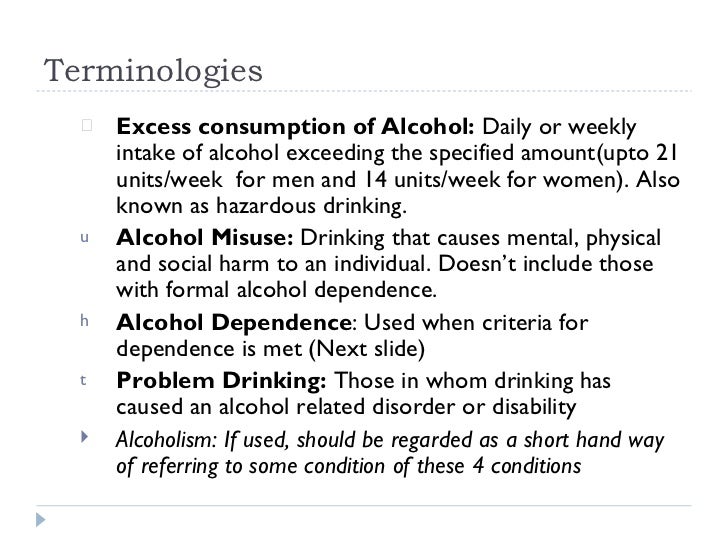
Since anxiety triggers feelings of sadness, isolation and disinterest, lots of depressed individuals self-medicate with alcohol. The NIAAA in a 2002 research study released evidence that 30�o 50�f alcohol abusers likewise have medical depression.
Levels of Alcoholism
Now that you much better understand what alcohol addiction is and what triggers it, let's take a quick look at exactly what the NIAAA thinks about the 5 kinds of alcoholic.
Young Adult Subtype This group comprises roughly 32�f all alcoholics in the United States. These people are young people who do not see the have to seek professional assistance for their issue. Even though those in this group have the tendency to drink less than others, binge drinking is a problem.
Young Antisocial Subtype Making up 21�f American alcohol ics, individuals in this group are an average of 26 years old. More than half of these individuals also have an antisocial character disorder. Among the separating factors of this subtype is the typical beginning legal age of 15.
Functional Subtype This group represents 19�f alcoholics in the United States. For the a lot of part, these individuals are midlife adults with an education, task, and stable relationships. They take in alcohol every other day, the majority of the time reaching 5 or more beverages.
Intermediate Familial Subtype Also representing 19�f alcoholics in the United States, this subtype usually starts drinking by age 17 and many have others in their household who decreased the very same course.
quotes is the rarest group, accounting for 9�f American alcoholics, and the most serious. Alcohol addiction really is a sad disease.
Your stereotypical alcoholic is a middle-aged white male with a life just like those in the chronic serious subtype. It is very important to keep in mind that alcoholism comes in any ages, shapes, sizes, colors, and genders.
Here's the bright side. Regardless of the subtype, an individual with an alcohol reliance can look for expert treatment to overcome their issue.
How to Stop Drinking
Do you think that you are an alcoholic? Perhaps you understand somebody who is suffering from alcohol addiction? As bad as things may appear, there are services to this problem. Many think that as soon as you are an alcoholic, you are constantly an alcoholic. That is not real. Alcohol addiction is a disease that can be cured. The temptation is the lifelong part.
Anyhow, aid does exist!
Doing nothing is the absolute worst thing you can do. Nearly 90,000 individuals pass away every year from causes related to what's in the bottle. If you think you need to stop drinking, you need to have a major conversation with your medical professional, your therapist, or a professional at a treatment facility.
Afterward, examine into a facility regardless. If you know you have an issue that needs treating, inspect into an inpatient center. Both are facilities that focus on assisting individuals who are presently abusing alcohol and/or drugs.
Most of people who are struggling with alcohol addiction are unable to stop "cold turkey." Plus, this is incredibly harmful, and can even be deadly. Alcohol withdrawal can cause fatal seizures, amongst many other undesirable symptoms. It always takes medical treatment to conquer a drug dependency, which alcohol addiction very much is.
Those who are alcoholics tend to use alcohol for actually no reason at all.
Over time, the regular intake of alcohol will alter brain chemicals, making the drinker crave alcohol not for a great time, but to prevent sensation inadequately. While less than 20�f alcohol users actually end up being alcoholics, there are over 930 genes associated with alcohol usage, and there is definitely a genetic aspect in danger for alcoholism. Keep yourself out of circumstances that include alcohol and you won't end up being an alcoholic.
Numerous think that once you are an alcoholic , you are always an alcoholic.
| | | |
|
